Elevate your chicken, pork, or lamb with this Greek yogurt marinade. This blend of creamy full-fat Greek yogurt, tangy lemon, minced garlic, and fresh dill infuses your meat with irresistible flavors. With easy steps and minimal marinating time, you’ll have a perfect protein in no time, whether it’s hot off the grill or direct from the oven.
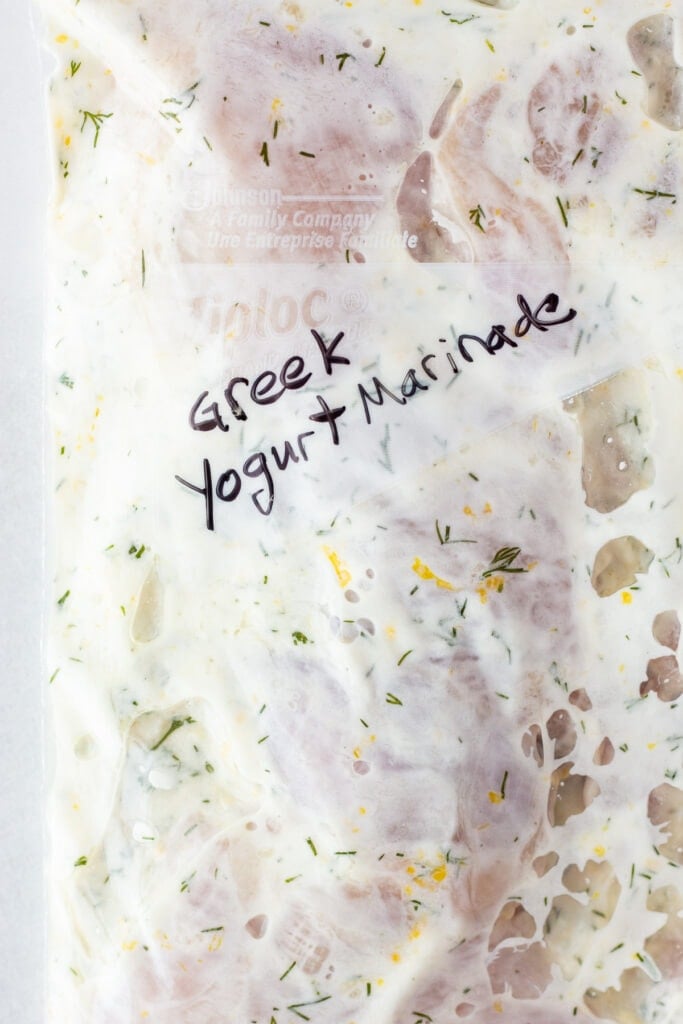
This Greek marinade is going to give you tangy, rich, and delicious meat – and isn’t that what we all want in a meal?
You may not know, but marinades are my thing. I’ve come up with over a dozen different marinades and while they’re all great, this one has some of the best and creamiest flavor.
I know creamiest sounds weird for a meat marinade, but I swear it’s a good thing.
My family’s favorite way to use this marinade is to grill up some boneless skinless chicken thighs, but it can absolutely be used for pork or lamb as well. I actually like to use it in my Greek salad with chicken, which includes a super easy homemade Greek dressing as well.
However you plan to use this marinade, it’s going to be delicious.
So scroll down to see the step by step pictures and instructions, as well as helpful tips, to get the most out of this Greek yogurt marinade.
Grab these ingredients
(Note: the full ingredients list, including measurements, is provided in the recipe card at the bottom of this post.)
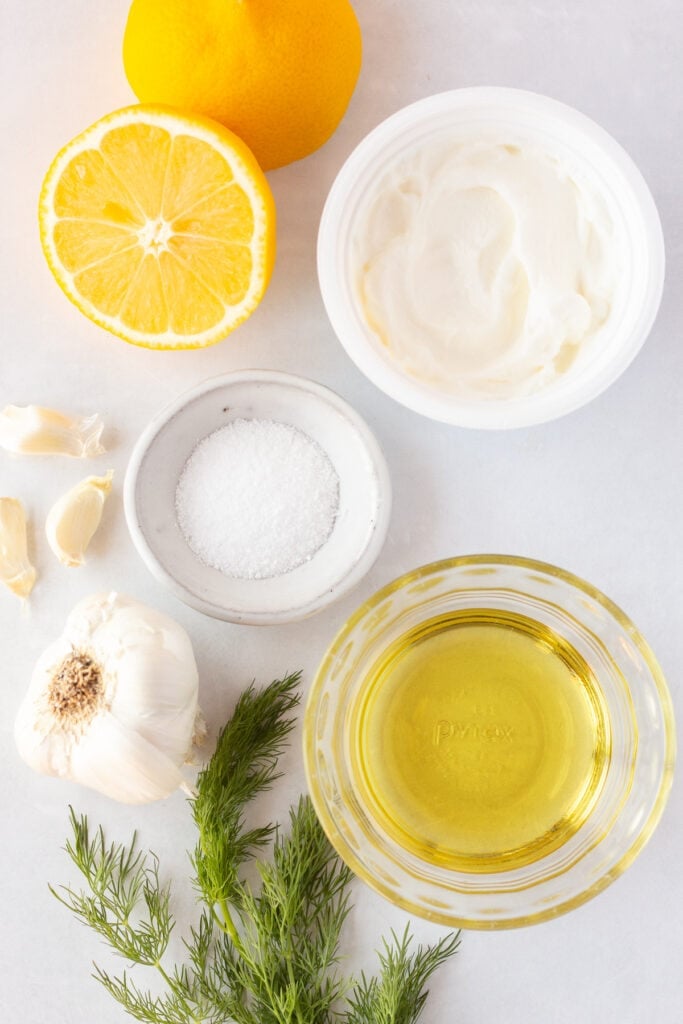
- Greek yogurt – go full fat for this recipe, as it will be much richer and tastier than doing low fat or fat free.
- Lemon – fresh is going to be best here, since you want both the zest and the juice.
- Dill – again, get fresh dish as it will really make a difference in the flavor. When I tested this recipe with dried dill it did not taste nearly as good.
- Garlic – it’s repetitive at this point, but again you want fresh garlic, not dried or garlic powder.
- Oil – use a mild, high heat oil since you’re be either grilling or baking your protein. I like to use avocado oil.
- Kosher salt – I used Diamond Crystal kosher salt in this recipe. It is less salty by volume than many other salts, so if you are using a different type of salt (kosher or otherwise), you’ll want to use this salt conversion chart from Epicurious to determine how much salt you’ll need.
Key elements of a marinade
Once you know how, making a marinade is pretty simple. All you need are the following four elements:
- acid to help break down the protein fibers,
- fat to coat the meat,
- salt to season the meat, and
- spices, herbs, or other flavors.
In this marinade, the oil is the fat, the lemon juice is the acid, there’s kosher salt, and the lemon zest, dill, and garlic act as additional flavors. The Greek yogurt acts as both a fat and an acid in this recipe.
How to make a Greek marinade with yogurt
(Note: please see the recipe card at the end of this post for the complete written instructions.)
There are just a few simple steps to this marinade – read on to see how it’s done!
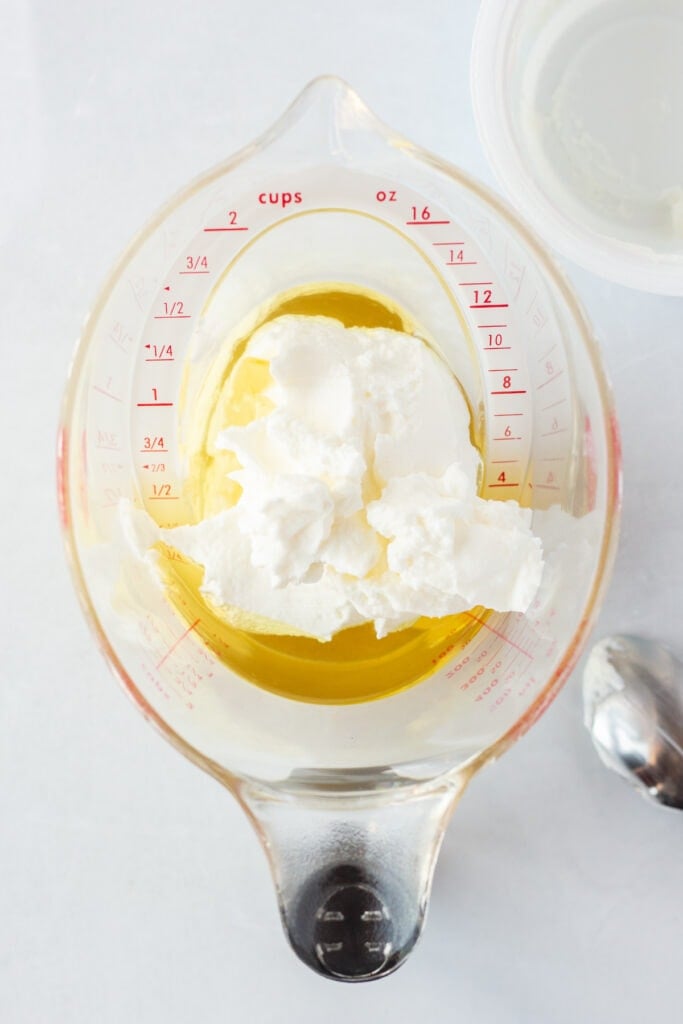
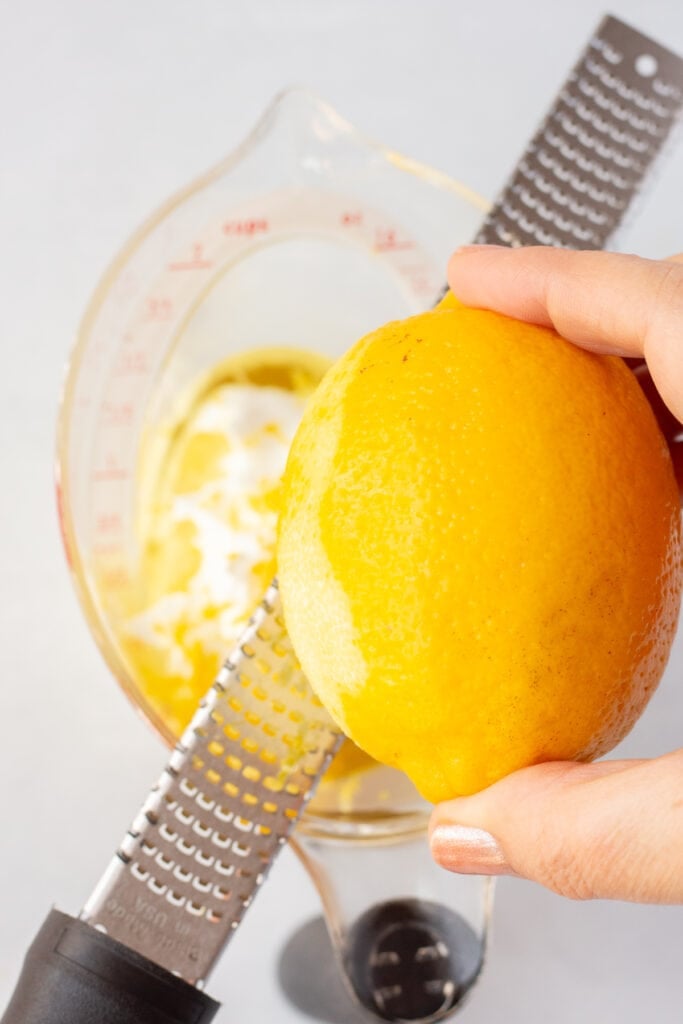
TIPS FOR ZESTING A LEMON
- Don’t cut the lemon before you zest it. A full lemon is going to be easier to handle than half lemon, and you won’t have to worry about juice squeezing out when you zest it.
- A microplane is going to give you the best results as it’s easiest to handle and has very small holes. If you don’t have a microplane, use the side of a box grater with the smallest holes.
- Rest the microplane on the rim of a bowl or cup that’s on a flat surface. This will help stabilize microplane and make it easier to apply pressure on the orange.
- Start out pressing the lemon very lightly onto the microplane so you only get the zest and not the pith (the whiteish part between the zest and the flesh). If you need to you can always go back over parts of the orange, but you can’t go back and pick pith out of parts you’ve already zested!
- Short movements are best when zesting. Since a lemon is mostly round, the longer your zesting movements the more adjustments you’ll have to make. This can lead to over-zesting and getting the pith in the zest. Do short swipe
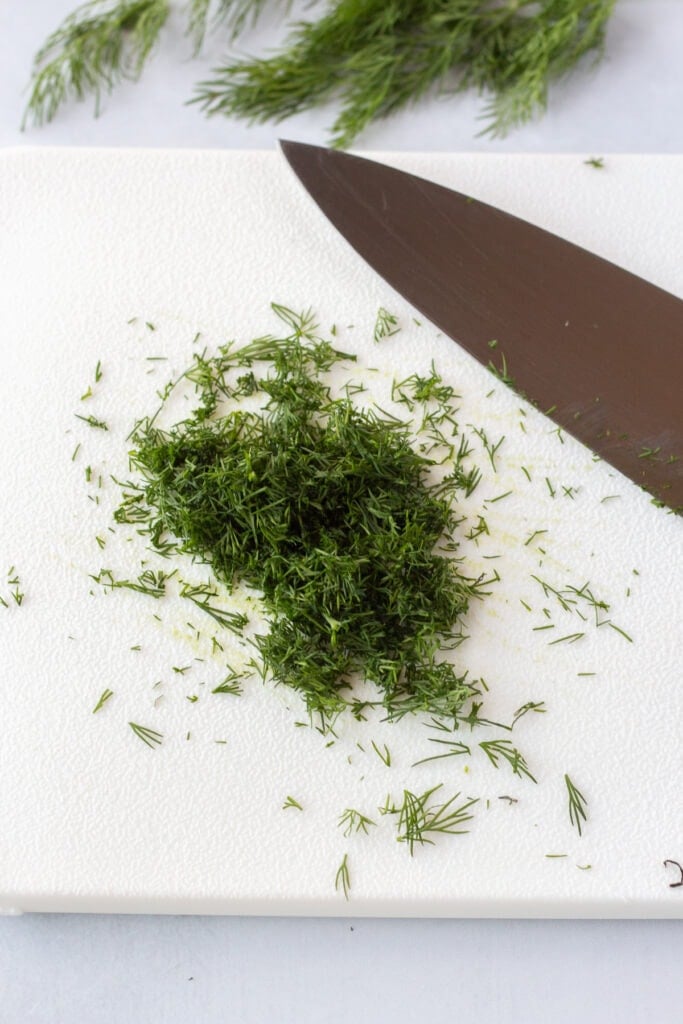
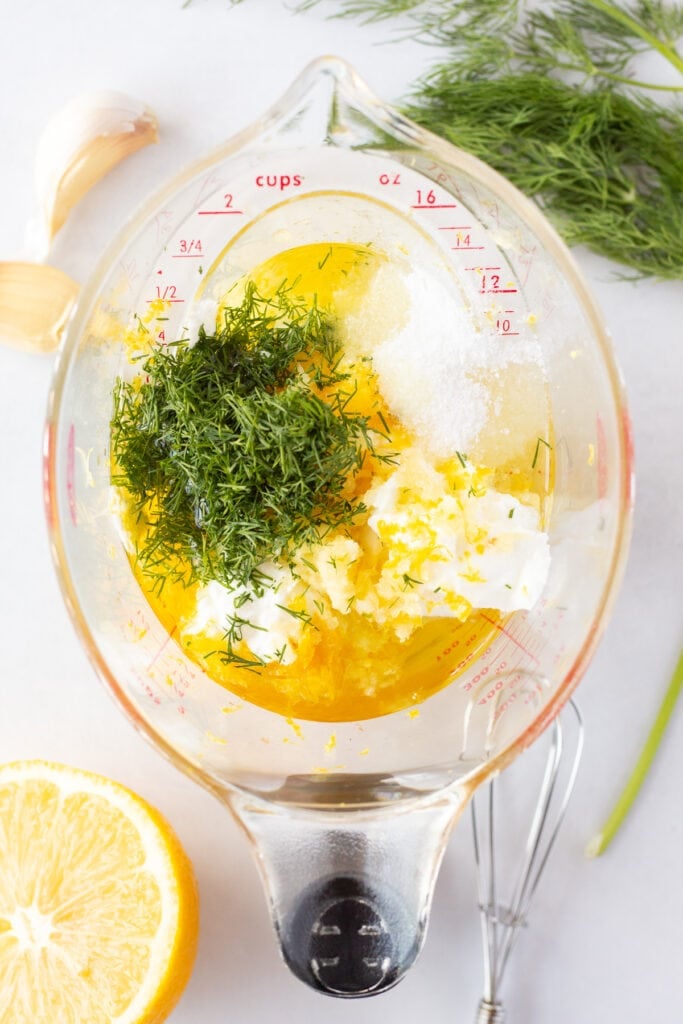
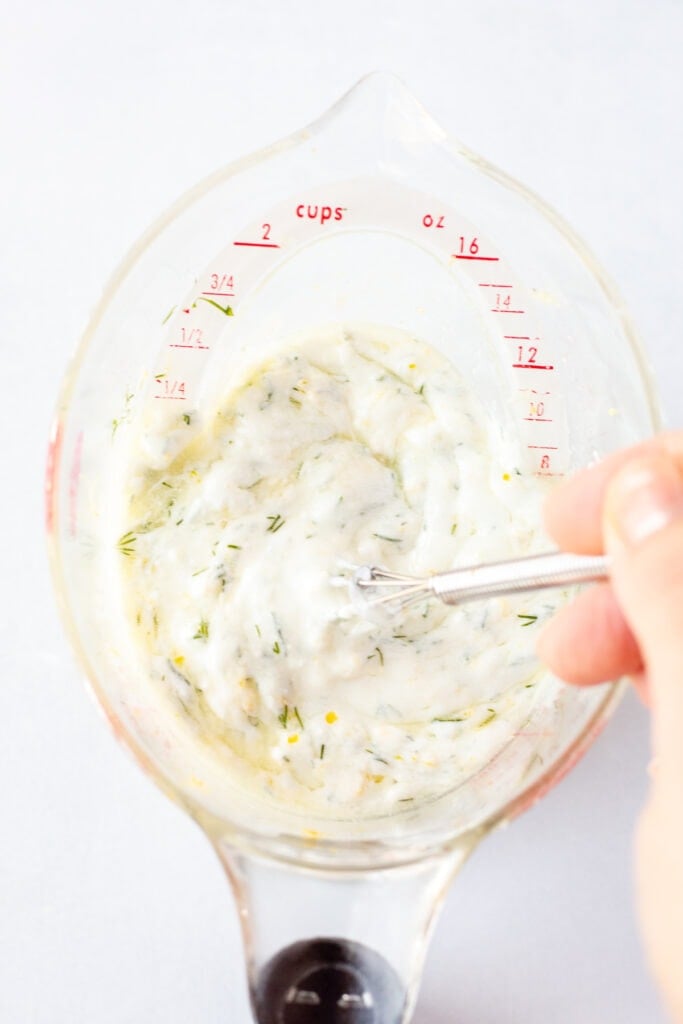
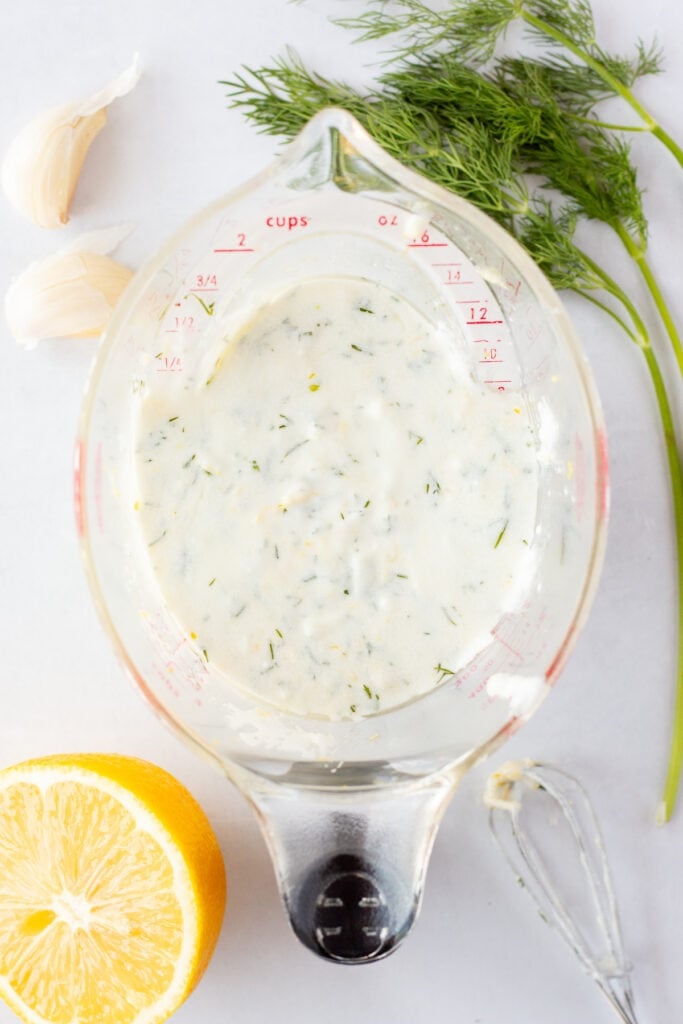
Recommended marinating time
For chicken, pork, or lamb, the recommended marinating time is between 1.5 and 2 hours.
Longer than that is not recommended as lemon is very acidic and can start to “cook” the protein (similar to the way ceviche “cooks” seafood, as explained by Serious Eats).
Cooking with this Greek marinade recipe
You can cook with this marinade on the grill or in the oven. I would not recommend cooking with it on the stovetop.
- Tip for cooking on the grill: start with a high heat (500 degrees F) to get a good sear on your protein, then immediately turn it down to more of a medium heat (375-400 degrees F) to finish cooking.
- Tip for cooking in the oven: use a sheet pan with a lip, cover the inside with foil, and place a wire rack inside. Place the protein on the wire rack so that air circulates on both sides of the meat and the bottom doesn’t get soggy or undercooked.
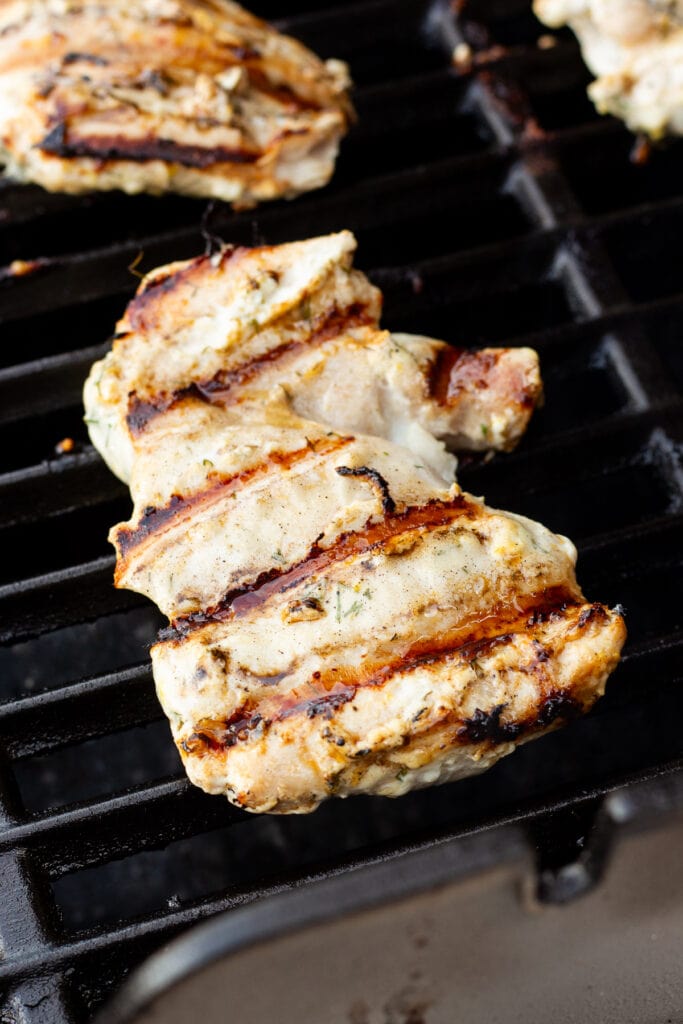
For both the grill and the oven, you want to place the protein in the marinade, either in a sealed ziploc bag or in a flat container. Place the marinating meat in the fridge for 1.5 to 2 hours, removing it for the last 15 minutes to warm slightly before cooking.
In all cases, you want to cook the meat until it reaches the right internal temperature. I’ve listed them out below, but be sure and check out this guide on internal temperatures for meat – it’s written for grilling but is applicable for all cooking methods.
- Chicken: cook to 165 degrees F
- Pork: cook to between 145 and 160 degrees F
- Lamb: cook to 145 degrees F
Save this post to your Pinterest for later! ⤵️
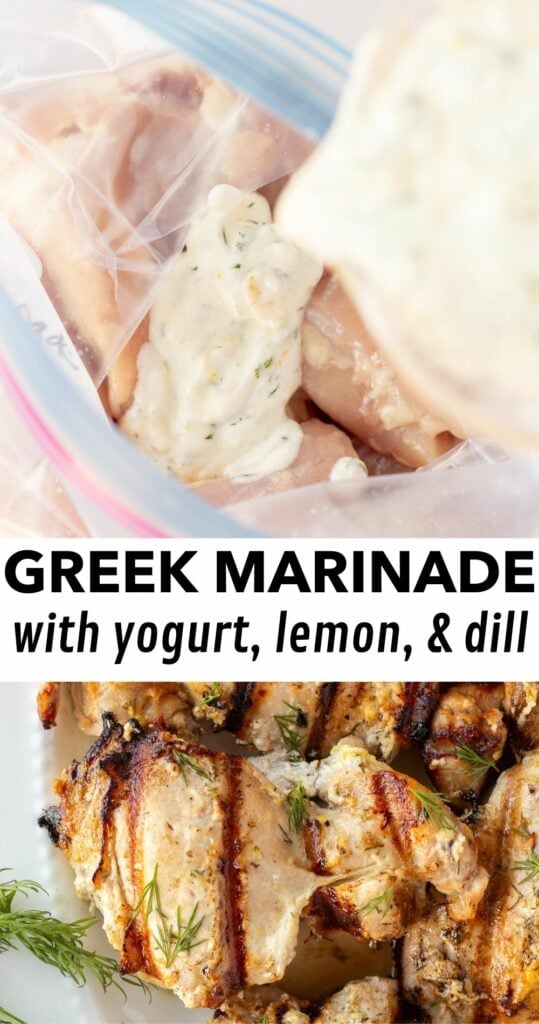
You can also follow me on FACEBOOK, INSTAGRAM, & PINTEREST to see more good to eat, gluten free food on and off the grill.
If you make this ham steak marinade recipe, then don’t forget to leave a star rating and let me know how it went in the comments below!
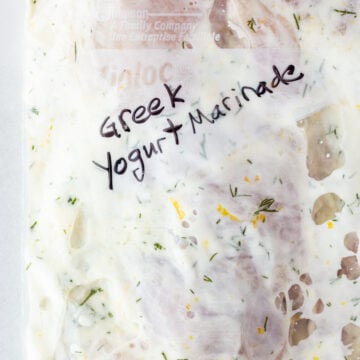
Greek Yogurt Marinade for Chicken, Pork, or Lamb
Equipment
- A large liquid measuring cup
- A garlic press
Ingredients
- 5.3 oz full fat plain Greek yogurt
- 1.5 tsp DC kosher salt
- 2 oz oil
- 2-3 large garlic cloves pressed or minced
- 1 tbsp chopped fresh dill fronds
- zest from 1 lemon
- juice from ½ lemon 1.5 to 2 ounces
Instructions
- Pour oil into a large liquid measuring cup. Scoop the Greek yogurt out of its container and into the cup as well.
- Zest the lemon using a microplane. Place the microplane on top of the measuring cup, so that the zest falls straight in. Zest the lemon by rubbing it against the microplane in short swipes, scraping just the vibrant yellow skin off into the bowl and not the lighter pith underneath. You may need to wipe the zest off the bottom of the microplane with your finger to get it all off.
- Once the zest is off, use a sharp knife and cutting board to cut the lemon in half. Juice half the lemon into the same bowl as the zest and storing the other half away for a different use.
- With the knife and cutting board, finely chop the fresh dill fronds, measure them out, and add them to the cup. Use a garlic press to press the garlic, or mince it with the knife and cutting board and add that and the kosher salt to the cup. Use a small whisk to combine the ingredients together.
- Use the marinade right away on your protein of choice.
Notes
- works for 1.75-2 lbs of of meat.
- For chicken, pork, or lamb, the recommended marinating time is between 1.5 and 2 hours in the fridge.
- Bring the protein out of the fridge for last 15 minutes to warm slightly.
- Tip for cooking on the grill: start with a high heat (500 degrees F) to get a good sear on your protein, then immediately turn it down to more of a medium heat (375-400 degrees F) to finish cooking.
- Tip for cooking in the oven: use a sheet pan with a lip, cover the inside with foil, and place a wire rack inside. Place the protein on the wire rack so that air circulates on both sides of the meat and the bottom doesn’t get soggy or undercooked.
- Cook to the following internal temperatures: chicken: cook to 165 degrees F, pork: cook to between 145 and 160 degrees F, and lamb: cook to 145 degrees F


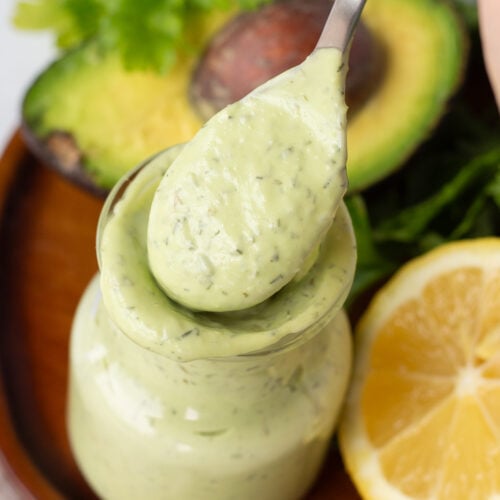
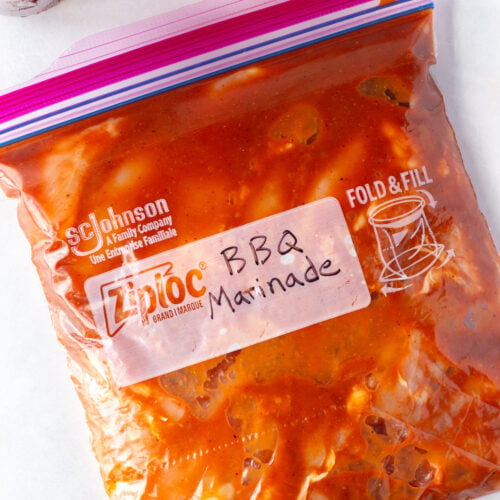
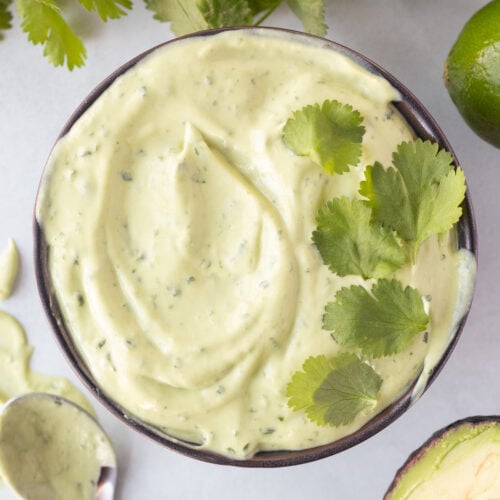
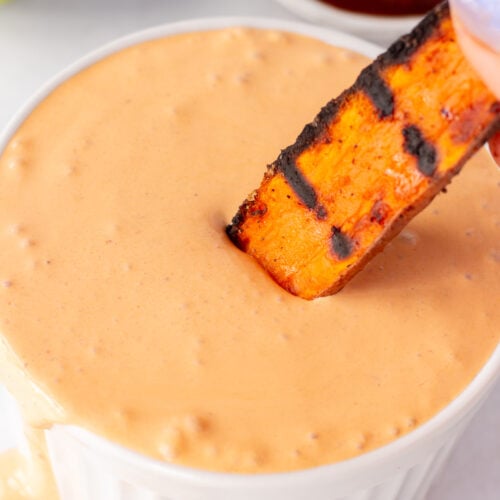
Leave a comment